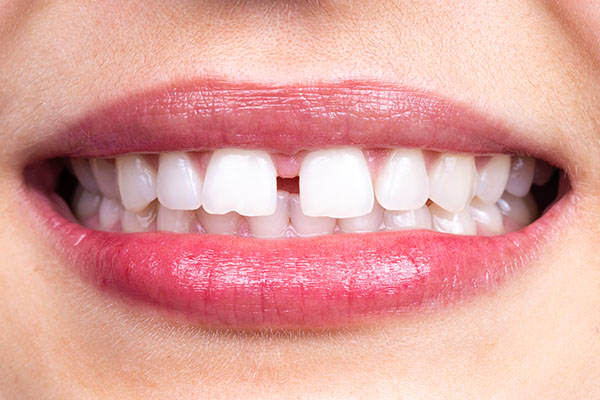Dentures to Replace Missing Teeth and Gums

A set of dentures is a tooth replacement solution for people who have lost one or more teeth. It enhances the look of teeth while also restoring their function. Read on to learn more about how dentures are used for restoring lost teeth and gums.
Getting dentures
The number of missing teeth on the jaw determines the sort of dentures that the dentist will recommend for the patient. If only a few teeth are missing, the dentist may offer partial dentures to fill in the gaps. A full denture will be required if most or all of the teeth are missing.
Partial dentures
Removable partial dentures and fixed partial dentures are the two types of partial dentures. Removable partial dentures are made out of prosthetic teeth held in place by a gum-colored plastic foundation. A metal structure that supports the denture is usually linked to the base. The metal framework that keeps the detachable partial dentures in place is prone to breaking, so they will need to be fixed or replaced regularly.
Fixed partial dentures are not detachable once placed in the mouth. They are supported by dental implants, which act as the foundation for the prosthetic teeth. Dentures held in place by dental implants are more stable and last longer, enabling patients to use them for more extended periods before needing replacement.
Full dentures
Full dentures have two forms: traditional full dentures and immediate complete dentures. Traditional dentures are manufactured when all the teeth in the mouth have been lost or removed, and the gum tissue healing is complete. These dentures are not installed in the mouth until eight to 12 weeks after the teeth extraction.
Immediate dentures are produced before the remaining teeth are removed and may be installed right away. Many individuals choose these dentures in order to continue to have teeth throughout the healing process. However, there is the drawback of requiring more modifications for a correct fitting. Therefore, most dental professionals use them as a temporary option before the traditional full dentures set is ready.
The process of making dentures
The bone and gum tissue will begin to heal and cover the tooth socket after a tooth is removed or lost. It takes a few months for the gums and bone to stabilize. At this point, patients can visit the dentist for a traditional complete denture, ideally between 8 and 12 weeks after their teeth have been pulled or lost from the mouth.
The first step is to take imprints or molds of the oral tissues, which will hold the denture. These imprints will be used to create models of the patient's mouth at a dental laboratory. Each phase of the denture-making process must be done in the patient's mouth. The dentist and lab technician will make sure the dentures fit properly, create a good bite, and have a pleasing look and feel in the mouth.
Until the denture production is done, the patient will need to visit the dentist once a week for roughly four to five weeks. After the denture is supplied, the patient will need to return to the dentist many times throughout the first month for minor modifications.
What to expect
Patients who have never gotten dentures before may feel a strange sensation in their mouth during the first few weeks. The oral muscles and tongue need to get used to supporting the dentures so the patient can feel at ease when wearing them or taking them off. When patients start wearing dentures, they may also experience discomfort or pain. However, this will lessen as the patient gets used to them.
The dentist will let patients know how long to wear their dentures each day. They may have to wear them all day at first to figure out which sections of the denture need to be adjusted. After the final adjustments have been made, the patient will be instructed to remove their dentures before going to bed.
Dentures might be tricky to eat with. Start with soft meals, and gradually introduce more solid ones, chewing them on both sides of the mouth. It is advisable to avoid sticky or chewy meals. The denture will stay in place when the cheeks and tongue are acclimated to it.
Conclusion
Dentures are a cost-effective and efficient solution to restore lost teeth without undergoing intrusive treatment. If you have lost several teeth and want to restore your smile, speak to your dentist about getting dentures.
Request an appointment here: https://www.carolinasmilesdentist.com or call Carolina Smiles Family Dental at (828) 974-3326 for an appointment in our Brevard office.
Check out what others are saying about our dental services on Yelp: Dentures and Partial Dentures in Brevard, NC.
Recent Posts
Dentures can restore normalcy to the functions of chewing and eating, but for first-time wearers, there is a period spent adjusting to new dentures. By asking a dentist about this transitionary period, it is possible to minimize the discomfort and awkward mishaps that often accompany getting used to a new dental appliance. In addition, dealing…
Getting dentures is the most affordable way to restore lost teeth. These removable dental replacements are easy to acquire as well. Upper and lower dental replacements are custom-fit. Your dentist can recommend them under the right conditions. If you want to know when dentures can replace missing teeth, here are the details.Dental implants are the…
A partial denture for one missing tooth is an effective solution to this common oral health issue. Few things can be more embarrassing than a missing front tooth, but even a single tooth missing in the back of the mouth where it does not show can cause serious discomfort as well as a host of…
Overdentures are removable dentures used to replace missing teeth and cover or rest on the one or more remaining natural teeth in the mouth. These dentures are also known as hybrid dentures or tooth-supported dentures.Overdentures are similar to dental implants in the sense that implants are fused to the gums to stimulate tooth roots, which…


